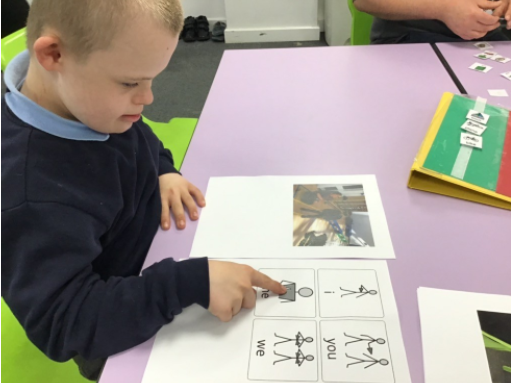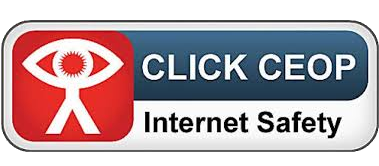Communication
At Rigby Hall, a high percentage of pupils have speech and communication difficulties or needs. Rigby Hall School recognises that communication underpins all learning in the school, and we are committed to providing a total communication environment. Rigby Hall School are dedicated to inclusion of all pupils, regardless of difficulties or disabilities. The communication needs of our pupils will be identified and met through universal, targeted and specialist support, provided by knowledgeable and trained staff. These staff will also work in conjunction with other professionals, in order to support all children appropriately. Rigby Hall School use varied methods of communication support; including the use of singing and symbols (low tech AAC - Augmentative and alternative communication), aided language displays (ALDs) and where appropriate; high- tech communication devices. The goal being to provide alternative communication systems for all; with which all children can access our specialist and highly differentiated curriculum.
How we do this:
1. Total communication approach:
Sense (2019) define Total Communication approach as: “Finding and using the right combination of communication methods for each person. This approach helps an individual to form connections, ensures successful interactions and supports information exchanges and conversations. A combination of methods are used, which reinforce each other and strengthen meaning for the individual”.
We use a variety of methods for children who may be non-verbal, use language based communication (signing), use symbol systems or high tech devices such as computerized devices. Including, but not limited to; objects of reference, eye gaze/pointing, PECS, body language, vocalisation, written word, symbols, signing (Signalong), communication books, aided language displays and where needed high-tech augmentative devices such as computer systems.
2. Identifying needs and types of support for pupils
Children are regularly assessed under various speech and communication frameworks, and will be identified by teachers and professionals as needing various levels of support. The levels of Speech and Language support given by both teachers and specialist language therapists are Universal levels, targeted levels and specialist support which is outlined within their EHCP.
Communication at Rigby Hall School is very important. We encourage the children to practice their communication skills in a variety of different ways. In Primary, children have weekly dedicated Communication sessions in which children can develop their speaking and listening skills in fun ways. Our Early Years and KS1 children particularly enjoy engaging in ‘Listening time’ activities (taken and adapted from Worcestershire Speech and Language Services). In KS2-KS4 pupils engage in the Talkabout programme, whereby children develop great communication skills. A lot of this work is supported by our fantastic Speech and Language therapists who offer support to Rigby Hall pupils and staff two days each week.
Two of our Assistant Headteachers are Signalong Tutors who are able to train staff, pupils and familiies, as well as other professionals, as part of our Outreach offer.
We celebrate the important need for Communication in a yearly 'No pens day', in collaboration with The Communication Trust. For more information please see: https://ican.org.uk/no-pens-day-wednesday/






